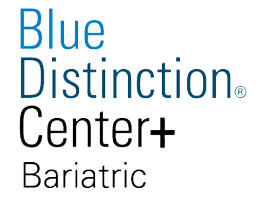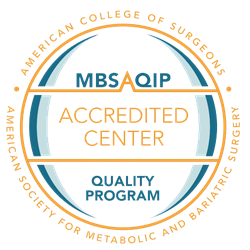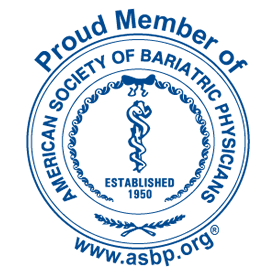Is This Normal? FAQ with Dr. Rodrick McKinlay
By: Dr. Rodrick D. McKinlay, MD, FACS

Learn more about weight loss surgery at Rocky Mountain Associated Physicians www.RMAP.com (801) 268-3800
Weight loss surgery induces many physical, emotional, and social changes. Many patients are surprised (sometimes pleasantly, sometimes not) by certain changes they experience after weight loss surgery. One question that runs through everybody’s mind sooner or later is, “Is this normal?” Some changes are very normal; others are not—but are harmless; and others are not normal and need to be investigated.
“Food just seems to taste different. Is this normal?”
It is normal to have taste changes and even some food aversions after weight loss surgery. You may feel like you want saltier foods, for example, after gastric bypass. No study has been done to show whether taste changes are permanent, but it appears that food aversions are most apparent in the first year or two after surgery. It is also possible for taste changes to occur multiple times after surgery, so don’t write off a certain food, just because you didn’t tolerate it well one time. In several months, you may enjoy what you once could not tolerate.
“I had my surgery six weeks ago and still feel so fatigued. Is this normal?”
Fatigue is normal to a certain degree after weight loss surgery. Not only have you had a major abdominal operation with general anesthesia, but your caloric intake has dropped dramatically. For this reason, people tend to feel fatigued for up to two months after surgery. Most people can return to work within one to three weeks after surgery, but after returning to work, many people feel exhausted at the end of the day. On the other hand, some people gain their energy back (and more!) in as quickly as one month after surgery. If you think you are more tired than you should be, talk to your doctor. It may be that drinking more water and taking in more protein are what you need.
“My hair keeps falling out. Is this normal?”
It is normal to experience some hair loss following weight loss surgery. Typically this occurs three to nine months after the operation, or after you have lost at least 50-75 pounds. Hair loss occurs as a natural stress reaction to weight loss. The hair loss should not be permanent. After weight loss tapers off, your hair will stop falling out and should return to normal growth. Remember to drink at least 64 ounces of water a day and eat plenty of protein, as this may help lessen hair loss. Some patients have reported that a biotin supplement or various thickening hair products help slow hair loss, but this is anecdotal and not scientific advice.
“It hurts when I eat. Is this normal?”
Pain after eating is not normal, but mild pain with swallowing may be a side effect of healing tissue in the first few weeks after surgery. If the pain is severe, regardless of the time since surgery, you should call your doctor’s nurse to discuss the problem. If the pain is still going on several weeks after your surgery, it could be a symptom of an underlying problem, such as a narrowing of the pouch outlet (“stricture”), or an ulcer. With any kind of abdominal or chest pain after surgery, especially pain that lasts longer than several hours, don’t hesitate to contact your doctor or even go the nearest Emergency Room if you’re worried.
“I had my surgery three years ago and have done great, but now I am starting to regain weight—is this normal?”
After losing a large amount of weight in the first year or two after surgery, it is common for patients to gain a small amount of weight back, about 5-10% of what they initially lost. But then the weight should plateau and stay relatively constant long-term, provided post-surgery guidelines are met, such as: avoiding liquid calories, no grazing, regular exercise, consumption of adequate protein, and avoidance of high-carb and sugary foods.
About the Author:

Dr. Rodrick D. McKinlay, MD, FACS, joined Rocky Mountain Associated Physicians (RMAP) in 2004 as a board certified general surgeon with expertise in minimally invasive or laparoscopic surgery. In addition to the surgical treatment of obesity, his practice involves a wide range of minimally invasive gastrointestinal surgery, including hernia repair, gallbladder removal, anti-reflux surgery, and the surgical treatment of spleen and adrenal disorders.
www.RMAP.com
Rocky Mountain Associated Physicians
801-268-3800
1160 East 3900 South, Suite 4100
SLC, UT 84124













 Address: 1521 East 3900 South STE 100
Address: 1521 East 3900 South STE 100 Office: +
Office: +  Fax number (801) 268-3997
Fax number (801) 268-3997 Email: info@rmapinc.com
Email: info@rmapinc.com



